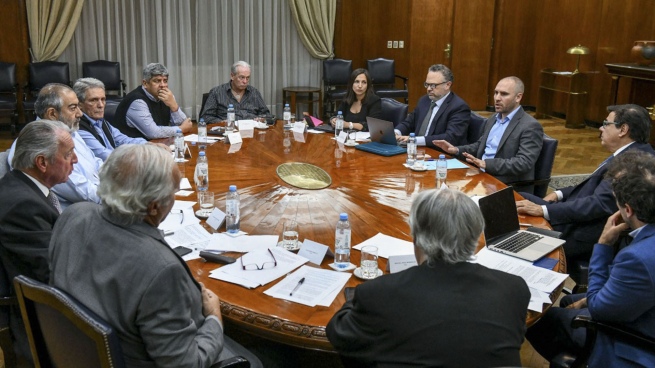Page Seven / La Paz
The Chamber of Industry and Commerce (Cainco) of Santa Cruz denounced discrimination by the Government regarding the salary increase defined for this year. He warned that public companies obtain privileges for the application of the salary increase, to which private companies do not have access.
“This first of May should have been a party for everyone, but it was not a party for us, we feel a hangover, or as they say in other regions of the country, we feel a chaqui without having drunk, without having celebrated,” said the president of the Cainco , Fernando Hurtado, yesterday at a press conference with the president of the Federation of Private Entrepreneurs of Santa Cruz, Jean Pierre Antelo.
Referring to the Government and the COB, Hurtado said that while they speak, march and issue decrees, “thousands of families and family businesses think about how to pay the bill.”
The conference was accompanied by a statement from the entity that emphasizes the critical situation of the companies.
“The Government has been applying differentiated wage increases. Family businesses have to apply the increases decreed by the Government and cannot fall below this base. It doesn’t matter if they haven’t recovered, it doesn’t matter if they’ve had profits or not, it doesn’t matter if their sales have fallen,” the document says.
On the other hand, he adds, in public companies “privileges continue to exist.”
“Privileges” for the state
La Cainco argues that the state companies have 30 days to establish whether or not to apply the 3% salary increase to the basic salary established by the Government after an agreement with the Bolivian Workers’ Central (COB).
He emphasizes that the increase could not be greater than the one approved for this year, “respecting the net profit and the financial availability of each company.”
“That is to say – adds the Cainco note – that they may or may not increase salaries arguing with financial sustainability in their projected cash flow for at least three years. Why doesn’t the same criteria apply to everyone? Why do family companies have to negotiate on the basis of 3 and 4% while public companies can stay below or simply not increase wages?
In their speeches, the COB and the Government say that private businessmen show signs of “solidarity” in terms of salary increases “Why don’t they ask the same solidarity from public companies? It is difficult to understand that those who demand solidarity from others do not apply the same criteria to state companies”, the industrialists ask.
Discrimination
The note adds that the Government forgets that during the pandemic “thousands of families” contributed from their pockets to deliver food to millions of Bolivians and donate medicines, open free centers and contribute to vaccination centers. “It is proven that we have never needed decrees to show solidarity. The reality is that we are seeing a great injustice, an open discrimination.”
In his message, Hurtado proposed that the negotiations be by sector or by item, between the directly related parties, which has been applied to health and education.
It also proposes using valid references for salary increases, considering the increase in the cost of living, the improvement in productivity and the growth of each item.
This May 1 should have been a party but we feel chaqui without having celebrated
Fernando Hurtado
Why should family businesses negotiate on the basis of 3 and 4% and not public ones?
Cainco Statement
The reality is that we are seeing great injustice and outright discrimination against employers
Cainco Statement


















